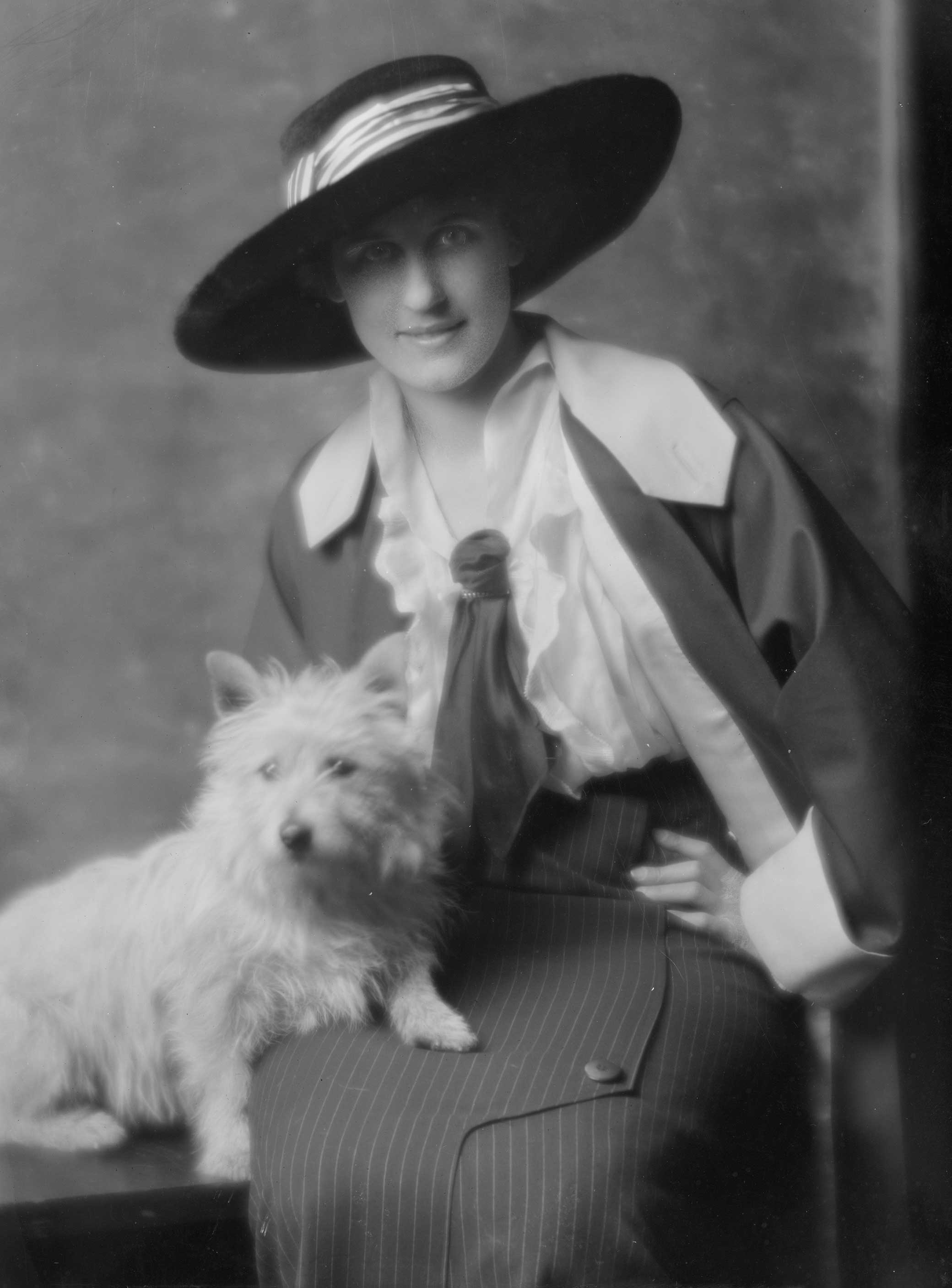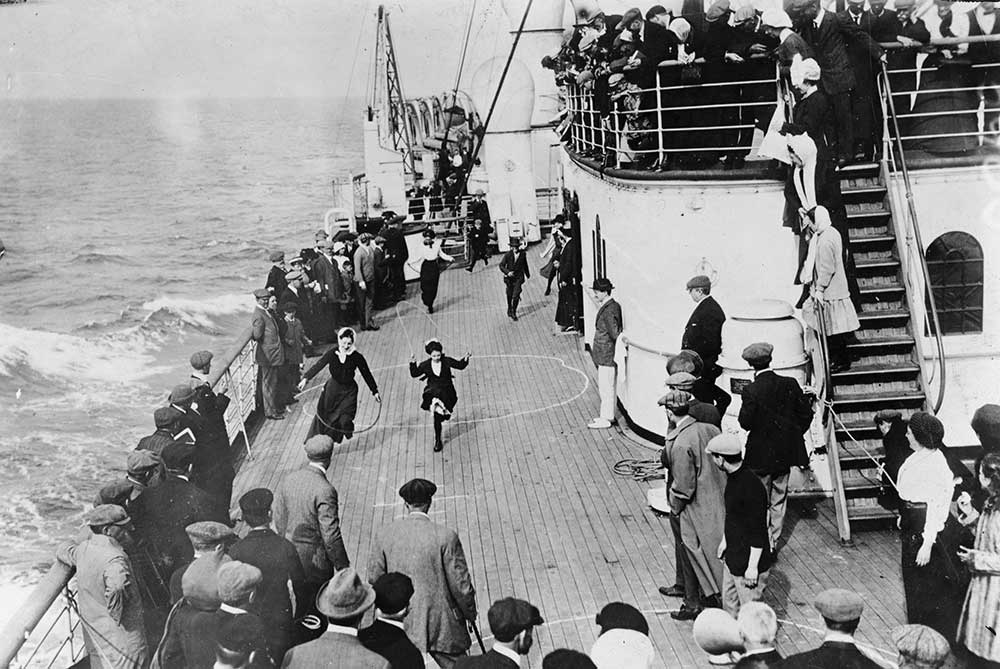
Inez Milholland, 1914. Photograph by Arnold Genthe. Library of Congress, Prints and Photographs Division.
When the London newspaper the Athenian Mercury, edited and published by the author and bookseller John Dunton, first answered questions about romance, bodily functions, and the mysteries of the universe in 1691, it may have created the template for the advice column. But the history of advice stretches back even further into the past. Advice—whether unsolicited, unwarranted, or desperately sought—appears in ancient philosophical treatises, medieval medical manuals, and countless books. Lapham’s Quarterly is exploring advice through the ages and into modern times in a series of readings and essays.
In early 1916 the Chicago Day Book, desperate for some timely leap-year content, asked the socialist suffragist Inez Milholland to explain how a woman might propose to a man.
Three years earlier—during a non-leap year—the Dutch coffee importer Eugen Boissevain had said yes to Milholland on the Mauretania, a Cunard Line ship en route to England. (Viewers of Titanic might recall that the Mauretania is mentioned by Caledon Hockley, played by Billy Zane, at the start of the film.) Milholland always managed to attract media attention, and the newspapers were ravenous for details about her marriage to a “mere man,” as one headline called Boissevain. (Another headline declared, perhaps signaling the Milholland family’s reaction to the news, father never knew of him.) But when interviewed by the New York Times about her relationship, Milholland said, “I would far rather talk about suffrage. I certainly would not have married if there was likely to be any difference made in my plans.”
Though several theories purport to explain why women can propose during a leap year, none are persuasive. Nonetheless, by the early twentieth century reporters and editors were happy to take the trope as a given. A newspaper in Wisconsin reported in March 1916 that a man named Ebeneezer Smith had allegedly “barricaded his home on New Year’s Day because he feared leap-year proposals,” while another newspaper declared a mayor in Indiana a “leap-year victim” a month earlier. The Day Book article featuring Milholland was headlined how leap-year girl should propose—as told by a famous suffragette who did! The piece manages to capture what probably brought the pair together—their charismatic intensity and steadfast devotion to equality—through its liberal use of quotes. Months later, Milholland collapsed while giving a speech in Los Angeles, dying soon after at the age of thirty. Boissevain later married the poet Edna St. Vincent Millay.

How will the leap-year girl propose? How will the leap-year bachelor act when she lays her heart at his feet?
The beautiful Inez Milholland Boissevain, who proposed three times, answers the first question, and her happy husband, Eugen Boissevain, replies to the second.
Everybody in America knows Inez Milholland, the beautiful suffragist who started her career by stirring up feminist agitation in staid old Vassar College, scorned New York society, practiced law in the ponce courts, and finally got herself jailed in England for rioting with Mrs. Pankhurst’s “wild women.”
There was amazement in the suffrage ranks when she suddenly became the wife of Eugene Boissevain. Feminists marveled that their dashing young general had consented to become the mere wife of a mere man. They wondered how young Mr. Boissevain did it.
Then came the most amazing act of Inez’s amazing career. She calmly announced that she did the proposing. This most beautiful of all suffragists further admitted that she had to pop the question three times before the man of her choice accepted.
Here is her advice to all girls who wish to propose:
Let her go toward the man with extended hand. Let her put her case to him freely and frankly three times if necessary. I did! Leap year or any other year. I am for woman’s free education, free work, and free speech in love as well as out of it. To me it is much more dignified to say the actual words “Let us mate” than to resort to lures and to seek to place the responsibility elsewhere. When an honest proposal is made, at least the man has a fair chance to escape. But when a woman traps a man by smiles and blandishments, then the man, waking up, finding himself hopelessly cornered, snarls, “It’s your fault!” My husband and I would undoubtedly have been lost to each other if I had not done the proposing. That is why I am proud of having done it. The one who first realizes the affinity of heart and soul should make it known to the other. In a majority of cases this realization comes first to the woman.
Here is Mr. Boissevain’s version of what happened when those three never-to-be-forgotten proposals were made: “I never had even thought of proposing to Inez Milholland because I did not intend to marry. In general, I do not approve of marriage as an institution.”
Yet Mr. Boissevain declares that the happiness of their married life and the fact that he still considers his wife the most charming woman in the world is due to frankness, honesty in telling him of her love, and her honesty in every other matter that concerns them.
I should feel the greatest disgust for any woman who came to the realization that she was in love with some man and yet was kept by cowardice and false pride from saying so. The courage of a woman who tells a man she loves him commands greater respect than any other thing I know. Marriage is fully as much an economic matter as a thing of sheer sentiment, and the man and woman should discuss all the advantages and the disadvantages together before binding themselves to each other. We talked the matter over as we would talk about any of the other important things of life. I came to see that Inez Milholland was right and we were married.
Read the other entries in this series: George Washington, Plutarch, Lewis Carroll, Chrétien de Troyes, Yan Zhitui, Nizam al-Mulk, Saadi, Giovanni Della Casa, Maria Edgeworth, Dan McQuade on basketball manuals, and Leopold Froehlich on syndicated advice columnists.